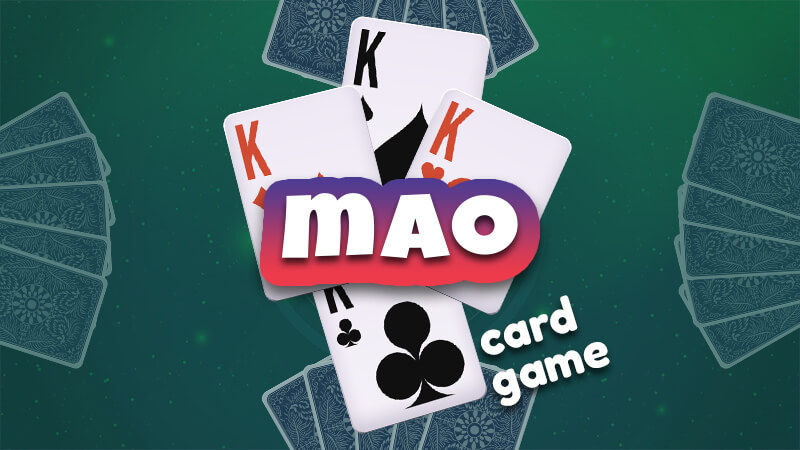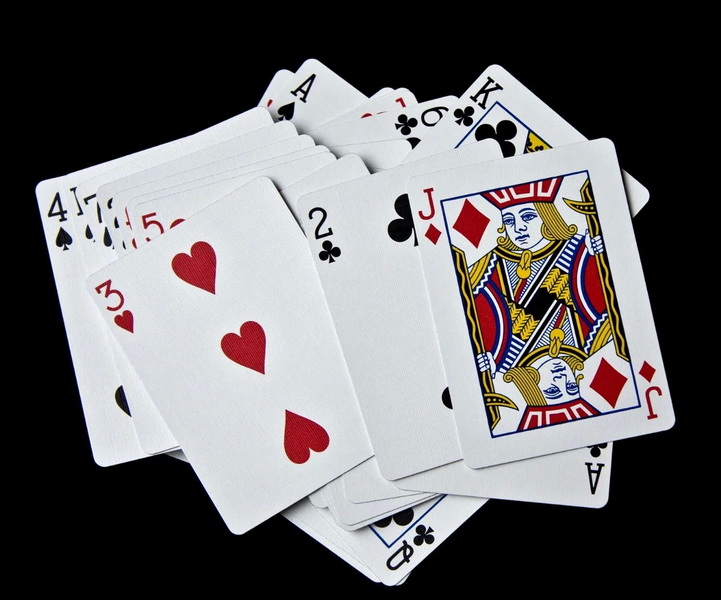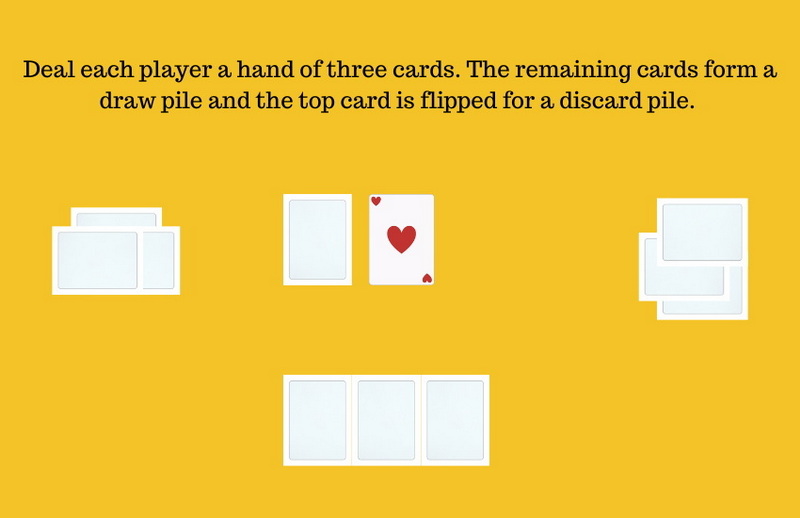Content Menu
● Introduction to Mao
● Game Setup
>> Gather Your Materials
>> Choose a Dealer
>> Deal the Cards
● Basic Rules of Mao
>> Starting the Game
>> Playing Cards
>> Special Card Rules
>> Communication Restrictions
>> Penalties for Breaking Rules
● Winning the Game
● Strategies for Success
>> Observe Opponents
>> Remember Rules
>> Manage Your Hand
>> Adaptability
>> Psychological Play
● Creating an Engaging Atmosphere
>> Set Up Comfortable Seating
>> Incorporate Snacks and Drinks
>> Establish House Rules
>> Encourage Laughter and Fun
>> Consider Background Music
● Variations of Mao
>> Uno Mao
>> People's Democratic Dictatorship
>> Penalty Variations
>> Speed Mao
>> Cooperative Mao
● Conclusion
● Frequently Asked Questions
>> 1. What happens if I forget to say "Mao"?
>> 2. Can I create any rule I want?
>> 3. What if I touch my cards before the game starts?
>> 4. How many players are needed for Mao?
>> 5. Are there any specific strategies I should follow?
● Citations:
Introduction to Mao
Mao is a unique and often chaotic card game that thrives on secrecy and creativity. Unlike many traditional card games, Mao has a set of rules that are not fully disclosed to all players, making it both challenging and entertaining. The objective of the game is simple: be the first player to get rid of all your cards while adhering to the often unpredictable rules that emerge during gameplay. This article will provide a comprehensive guide on how to play Mao, including its rules, strategies, variations, and tips for creating an engaging atmosphere.

Game Setup
Gather Your Materials
To begin playing Mao, you will need:
- A standard deck of playing cards (remove jokers).
- A group of friends (ideally 3-8 players).
- A flat surface to play on.
- Optional: Snacks and drinks to enhance the gaming experience.
Choose a Dealer
Select one player to act as the dealer. The dealer is responsible for shuffling the deck and dealing cards to each player.
Deal the Cards
Each player receives a set number of cards, typically between 5 to 7, depending on the group size. The remaining cards form the draw pile, which players will use throughout the game.
Basic Rules of Mao
Starting the Game
Once everyone has their cards, the dealer flips over the top card from the draw pile to start the discard pile. The dealer announces, "The game of Mao has begun," at which point players may not touch their cards until this announcement is made.
Playing Cards
Players take turns playing cards from their hand onto the discard pile. The following rules govern how cards can be played:
- Matching Cards: Players must play a card that matches either the suit or rank of the top card on the discard pile.
- Drawing Cards: If a player cannot play a card, they must draw one from the draw pile. If they can play this drawn card immediately, they may do so; otherwise, their turn ends.
Special Card Rules
Certain cards have special actions associated with them:
- Aces: Skip the next player's turn.
- Eights: Reverse the order of play.
- Sevens: When a seven is played, the player must say "Have a nice day." If another seven follows, they must say "Have a very nice day," adding an additional "very" for each consecutive seven played.
- Jacks: Wild cards that allow players to change the suit being played.
Communication Restrictions
One of Mao's defining features is its strict communication rules:
- Players may not discuss rules during gameplay.
- Players may not ask questions about rules; doing so results in penalties.
- Players can only speak when required by specific card actions or when issuing penalties.
Penalties for Breaking Rules
If players break any rules during their turn, they face penalties:
- The offending player must draw an additional card from the deck as punishment.
- Players who receive penalty cards must say "Thank you" or face further penalties.
Winning the Game
To win a round of Mao:
1. A player must play their last card and declare "Mao" after fulfilling all required statements related to that card.
2. If they fail to say "Mao" or break any rules while doing so, they incur penalties.
The winner gets to create a new rule for future rounds, which adds an element of surprise and strategy as players try to figure out what that rule is.

Strategies for Success
While luck plays a significant role in Mao, strategic thinking can enhance your chances of winning:
Observe Opponents
Pay close attention to how your opponents play their cards and what rules they seem to follow or break. This observation can provide clues about their hand and help you decide your next move.
Remember Rules
Keep track of all special rules in play; this will help you avoid penalties and exploit opportunities. Familiarizing yourself with common house rules before starting can give you an edge.
Manage Your Hand
Maintain a balance between high-value and low-value cards for flexibility in your plays. Holding onto lower-ranked cards can be beneficial as they are easier to play when you're nearing the end.
Adaptability
Since Mao's rules can change frequently based on new ones introduced by winners, be prepared to adapt your strategy accordingly. Flexibility is key in navigating unexpected twists in gameplay.
Psychological Play
Use bluffing and misdirection as strategies; sometimes pretending you have fewer playable cards than you do can lead opponents into making mistakes.
Creating an Engaging Atmosphere
Mao is not just about playing cards; it's also about creating an enjoyable experience for everyone involved:
Set Up Comfortable Seating
Ensure that all players have comfortable seating arrangements where they can easily reach the table without straining themselves.
Incorporate Snacks and Drinks
Having snacks and drinks available can enhance social interaction and keep energy levels high throughout gameplay.
Establish House Rules
Before starting, discuss any house rules that may differ from standard gameplay. This ensures everyone is on the same page and reduces confusion later on.
Encourage Laughter and Fun
Mao is inherently humorous due to its unpredictable nature; encourage laughter and light-hearted banter among players to keep spirits high.
Consider Background Music
Playing soft background music can create an inviting atmosphere but ensure it's not too loud or distracting from gameplay.
Variations of Mao
Mao has numerous variants that introduce different rules and dynamics into gameplay:
Uno Mao
This variation combines elements from both Uno and traditional Mao, incorporating unique starting rules and allowing players to create new ones after each round ends.
People's Democratic Dictatorship
In this variant, each player creates one rule at the beginning of each game round, leading to even more complexity and unpredictability.
Penalty Variations
Some groups may choose to implement harsher penalties for breaking rules or introduce additional special cards with unique actions associated with them.
Speed Mao
In Speed Mao, players must play their turns quickly without taking too long to think about their moves; this variation increases excitement but may lead to more mistakes!
Cooperative Mao
In this version, players work together against one or more designated “dictators” who control special rules aimed at making it difficult for others to win—this fosters teamwork while maintaining competitive spirit!
Conclusion
Mao is an exhilarating card game that combines elements of strategy, observation, and creativity with its unique set of evolving rules. Whether you're playing with friends or family, it promises hours of entertainment filled with surprises and laughter.
By understanding its basic mechanics and employing strategic thinking while adapting to new rules introduced by winners, players can enhance their gameplay experience significantly.

Frequently Asked Questions
1. What happens if I forget to say "Mao"?
If you forget to say "Mao" when playing your last card, you will incur a penalty by drawing an additional card from the deck.
2. Can I create any rule I want?
Yes, but your new rule must be generally applicable and cannot target specific individuals or contradict existing rules.
3. What if I touch my cards before the game starts?
Touching your cards before the dealer announces that "the game has begun" results in a penalty where you must draw an additional card.
4. How many players are needed for Mao?
While Mao can be played with as few as two players, it is best enjoyed with 3-8 players for maximum fun.
5. Are there any specific strategies I should follow?
Observing opponents' plays, remembering existing rules, managing your hand effectively, being adaptable, and employing psychological tactics like bluffing can significantly improve your chances of winning.
Citations:
[1] https://www.instructables.com/How-to-play-the-game-Mao/
[2] https://www.xkdisplay.com/how-to-play-the-card-game-mao.html
[3] https://www.unovariations.com/uno-variation-uno-mao
[4] https://groups.google.com/g/cngamedesign/c/tm40Vg0TkQY
[5] https://github.com/MFarejowicz/mao-rules
[6] https://playpartygame.com/card-games/shedding/how-to-play-mao-with-rules/
[7] https://www.pagat.com/invented/mao_vars.html
[8] https://archive.org/stream/pocketgamer/%E6%8E%8C%E6%9C%BA%E8%BF%B7vol009_djvu.txt
[9] https://vipspades.com/blog/how-to-play-mao-card-game/
[10] https://webview.tech/feed/
































